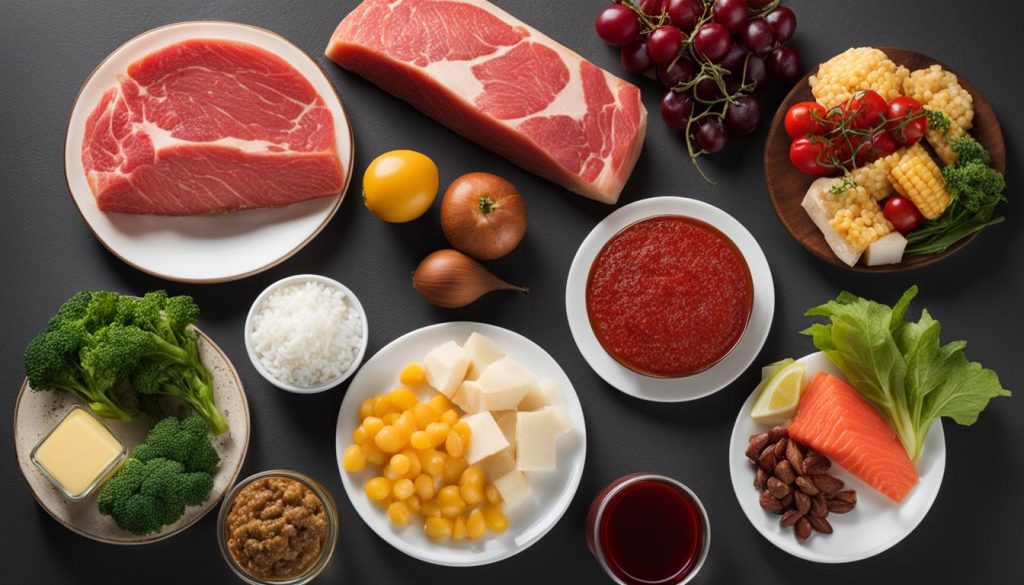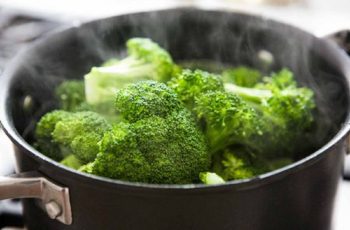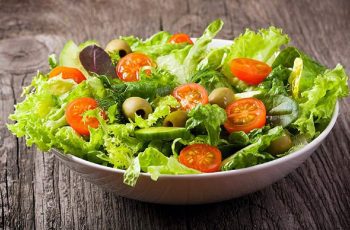Gout is a painful form of arthritis caused by high levels of uric acid in the blood. This condition occurs when uric acid crystals form and accumulate in and around the joints. Uric acid is produced when the body breaks down purines, which are found in certain foods.
To manage gout and maintain healthy uric acid levels, knowing what uric acid foods to avoid is essential. Following a gout diet can help decrease uric acid levels in the blood, lower the risk of gout attacks, and slow the progression of joint damage. A gout diet should focus on achieving a healthy weight, avoiding certain high-purine foods, and including foods that can help control uric acid levels.
Uric Acid Foods to Avoid You Should Know
- A gout-friendly diet plays a crucial role in managing uric acid levels and preventing gout attacks.
- Avoiding high-purine foods is important to maintain healthy uric acid levels.
- Gout diets should focus on achieving a healthy weight and including foods that help control uric acid levels.
- Foods high in purines, such as organ meats and seafood, should be limited or avoided.
- Consult with a healthcare provider or registered dietitian to create a personalized gout diet plan.
The Impact of Weight and Eating Habits on Uric Acid Levels
Maintaining a healthy weight plays a crucial role in managing uric acid levels and reducing the risk of gout attacks. Research suggests that even without following a purine-restricted diet, losing weight can lower uric acid levels and decrease the frequency of gout attacks.
But weight management is not the only factor to consider. Good eating habits also contribute to the control of uric acid levels. It is important to consume moderate portions of healthy foods and follow a gout-friendly diet.
A gout-friendly diet should focus on including complex carbohydrates from fruits, vegetables, and whole grains. These foods are rich in fiber, vitamins, and minerals that can help regulate uric acid levels and promote overall health.
On the other hand, it is advisable to avoid high-fructose corn syrup, often found in sugary beverages and processed foods. High-fructose corn syrup has been associated with an increased risk of gout and should be limited in the diet.
Drinking plenty of water is also essential for uric acid management. Staying hydrated can promote the elimination of excess uric acid through urine.
Additionally, reducing saturated fats from red meat, fatty poultry, and high-fat dairy products is recommended. Instead, lean meats, low-fat dairy, and lentils should be included in the diet to control uric acid levels.
When it comes to managing uric acid levels, certain foods should be avoided. Organ meats, red meat, high-purine seafood, and excessive alcohol consumption can contribute to elevated uric acid levels and increase the risk of gout attacks.
An illustration of the impact of weight and eating habits on uric acid levels:
The image above represents the importance of following a gout-friendly diet and maintaining a healthy weight for managing uric acid levels and preventing gout attacks.
Foods to Limit or Avoid for Uric Acid Management
Certain foods play a significant role in managing uric acid levels and preventing gout attacks. To effectively manage your condition, it’s crucial to limit or avoid foods that can cause gout or increase uric acid levels in your body.
Foods with High Purine Content
Purines are natural compounds found in certain foods that break down into uric acid in the body. To reduce uric acid levels, it’s important to limit or avoid foods that are high in purine content. These include:
- Organ meats like liver, kidney, and sweetbreads.
- Red meat, such as beef, lamb, and pork, should be consumed in limited serving sizes.
- High-purine seafood like anchovies, shellfish, sardines, and tuna should be consumed in moderation.
Alcoholic Beverages
Alcohol, especially beer and distilled liquors, is associated with an increased risk of gout and recurring attacks. It is advisable to avoid alcohol, particularly during gout attacks, as it can worsen symptoms and trigger more intense pain.
Sugary Foods and Beverages
Foods and beverages high in sugar or containing high-fructose corn syrup should be limited or avoided. These include sugary sodas, sweetened fruit juices, candies, and desserts. By reducing sugar intake, you can lower your risk of gout attacks.
Coffee and Cherries
While coffee and cherries are not high in purines, they may have potential benefits in reducing the risk of gout attacks. Coffee consumption has been associated with a lower risk of gout, while cherries have been found to help lower uric acid levels. Including these foods in your diet in moderation can be beneficial for gout management.

By being conscious of the foods you eat and making informed choices, you can effectively manage and control uric acid levels in your body, reducing the risk of gout attacks and improving overall health.
The Role of Diet in Uric Acid Reduction
Diet plays a crucial role in reducing uric acid levels and managing gout. By making certain dietary changes, individuals can effectively lower their uric acid levels and minimize the risk of gout attacks. Here are some key factors to consider:
Increase Vitamin C-Rich Foods
Increasing the intake of foods rich in vitamin C may help lower uric acid levels. Vitamin C is known for its antioxidant properties, which can help reduce inflammation caused by uric acid crystals. Some excellent sources of vitamin C include citrus fruits, strawberries, kiwi, and bell peppers.

Consult with a Doctor Before Taking Vitamin C Supplements
If you’re considering vitamin C supplements to lower uric acid levels, it’s important to consult with a healthcare professional. They can provide personalized advice based on your medical history and current condition.
Coffee and its Effect on Gout Attacks
Coffee, particularly regular caffeinated coffee, has been associated with a reduced risk of gout attacks. However, individual medical conditions should be taken into consideration. It’s always best to consult with a healthcare professional before making any significant changes to your diet.
High-Purine Vegetables and Gout
Contrary to popular belief, consuming high-purine vegetables, such as asparagus and spinach, does not increase the risk of gout or recurring gout attacks. These vegetables are considered safe to include in a gout-friendly diet.
Adopting a Low Purine Diet
While purine content in foods can vary, adopting a low purine diet can be beneficial in reducing uric acid levels. Key principles of a low purine diet include limiting or avoiding high-purine foods, such as organ meats, certain seafood, and yeast extracts.
Consider a Healthy Eating Pattern
Adopting a healthy eating pattern, such as the DASH or Mediterranean diet, can help manage gout. These diets emphasize fruits, vegetables, whole grains, lean proteins, and healthy fats, while limiting foods with high purine and fructose content. Research suggests that these dietary patterns can contribute to better overall health and lower uric acid levels.
By incorporating these dietary strategies, individuals can take proactive steps towards reducing uric acid levels and managing gout. However, it’s essential to consult with a healthcare provider or registered dietitian to create a personalized gout diet plan that suits individual needs and medical conditions.
Conclusion
Managing uric acid levels and preventing gout attacks requires a combination of medication and dietary changes. A gout-friendly diet can play a crucial role in limiting uric acid production and increasing its elimination. To effectively manage uric acid, it is important to avoid or limit foods that are high in purines, such as organ meats, red meat, and certain types of seafood.
Additionally, maintaining a healthy weight, following good eating habits, and staying hydrated by drinking plenty of water are essential for uric acid management. Including foods that help control uric acid levels, such as lean meats, low-fat dairy, and vegetables, can further support the management of uric acid levels in the body.
For personalized guidance, it is recommended to consult with a healthcare provider or registered dietitian who can create a tailored gout diet plan based on individual needs and medical conditions. By making these dietary changes and adhering to a gout diet, individuals can improve their overall health and well-being while effectively reducing the risk of gout attacks.
FAQ
What is gout?
Gout is a painful form of arthritis caused by high levels of uric acid in the blood. It occurs when uric acid crystals form and accumulate in and around the joints.
How does diet affect uric acid levels?
Certain foods contain purines, which are broken down into uric acid in the body. To manage uric acid levels, it is important to avoid high-purine foods.
What foods should I avoid for better uric acid management?
You should avoid organ meats, red meat, high-purine seafood, sugary foods, and beverages with high-fructose corn syrup. Additionally, excessive alcohol consumption should be avoided.
Can I include any foods in my diet to help control uric acid levels?
Yes, you can include lean meats, low-fat dairy, vegetables, coffee, and cherries in your diet in moderation. Vitamin C-rich foods may also help lower uric acid levels.
How can I manage my uric acid levels and prevent gout attacks?
It is important to maintain a healthy weight, follow good eating habits, stay hydrated, and limit or avoid foods that are high in purines. Consulting with a healthcare provider or registered dietitian can help create a personalized gout diet plan.




